The original Mary Kaye Fender Stratocaster – the distinctive electric guitar, which coined a completely new term for Strat finishes – is set to go under the hammer later this week.
As far as Stratocasters go, it’s one of the most influential examples to ever exist. The translucent blonde-finished, gold-hardware six-string first made its debut in the arms of legendary Las Vegas performer Mary Kaye, who was famously snapped holding the guitar in 1956 during a Fender promotional shoot that featured The Mary Kaye Trio.
Assembled in 1956, the guitar in question was arguably the first-ever Fender Custom Shop Strat ever produced, and was the first to feature this particular color scheme.
That color scheme comprises a blonde finish, gold hardware and white plastic, paired with a maple neck. A relatively unassuming colorway, but one that had never been seen before – and one that quickly became synonymous with the artist who was first pictured playing it.
As such, in guitar circles, the term ‘Mary Kaye’ doesn’t refer to the Stratocaster itself. Instead, it evolved into an identifying term for an entire colorway, which has now become one of Fender’s most recognizable cosmetic set-ups.
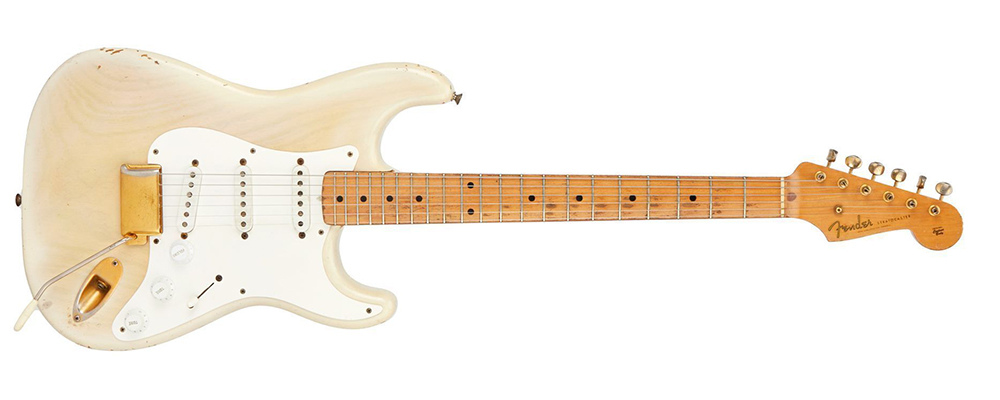
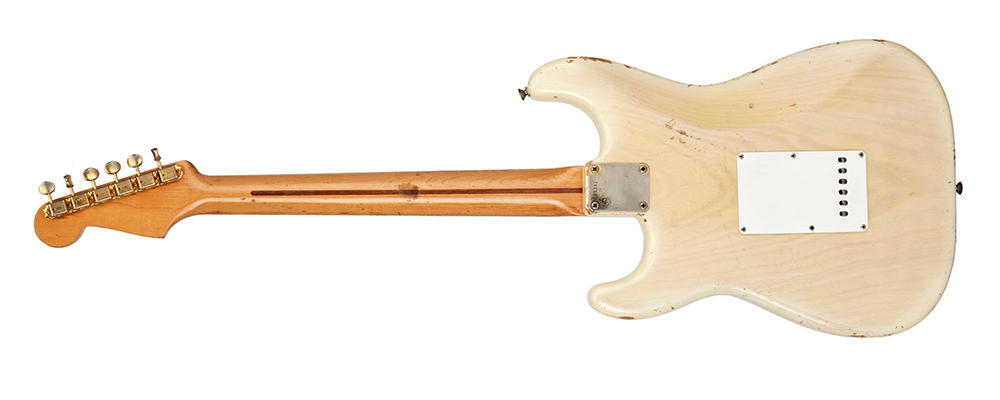
Indeed, a quick search for ‘Mary Kaye Strat’ on Google and you’ll be met with a series of Custom Shop models and vintage reissues that all use Kaye’s name as a way to describe the aesthetic.
It’s a phenomenon that hasn’t been replicated to the same extent since. As Mike Adams – Julien’s in-house guitar appraiser, who handled the Kaye Strat for the auction – tells Guitar World, players are often associated with a finish or colorway, but it’s very rare that a player’s name becomes the actual tagline for an entire aesthetic.
“Within the broader context of pop music, we have examples of artists who became heavily associated with a color: Prince with purple…” he says. “David Gilmour’s famous black Strat comes to mind, Zakk Wylde’s Bullseye Les Paul, The White Stripes’ iconic red and white scheme, and even Jack White’s recent fascination with blue could all be good examples of this phenomenon.
“That said, I’m hard-pressed to think of another example of an artist’s name being the industry-wide term for a type of finish. Buck Owens’ Red White and Blue look might be an exception, but his name feels a little less common these days within guitar circles, recent Fender reissues notwithstanding.
“Eddie Van Halen is certainly a contender with his red, white, and black striped paint job, but even he had a number of color schemes on his most famous guitars.”
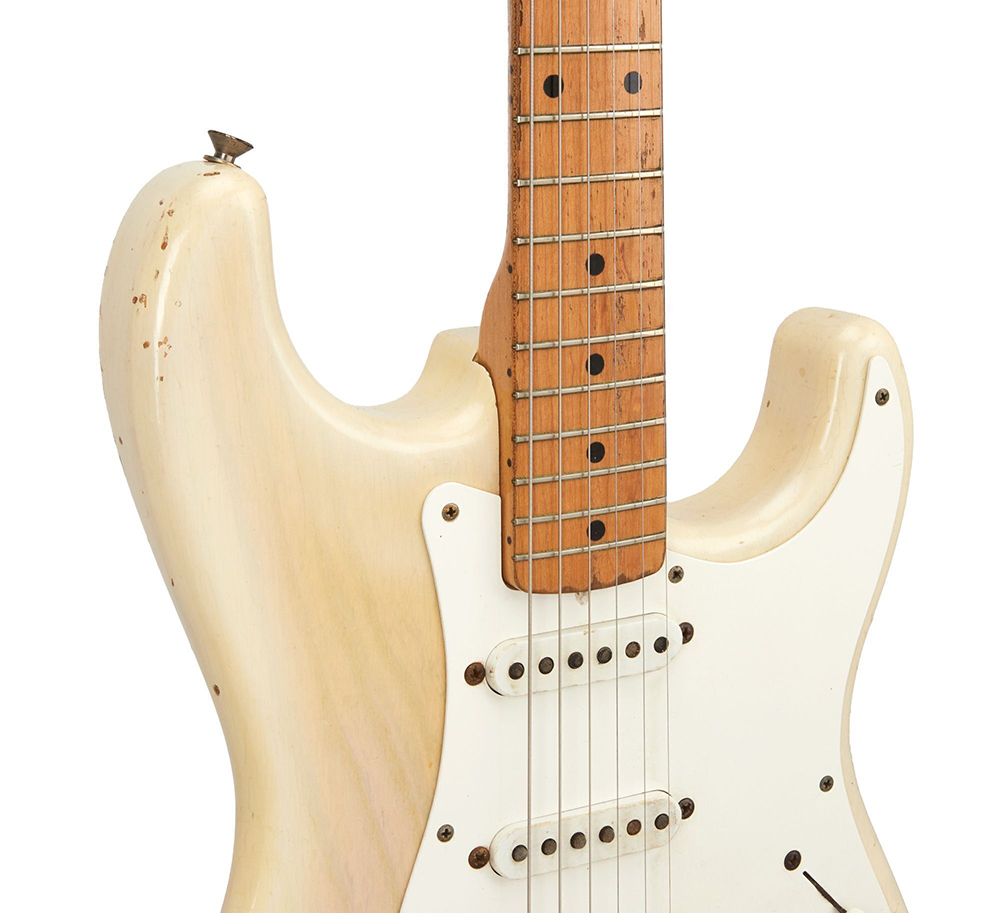
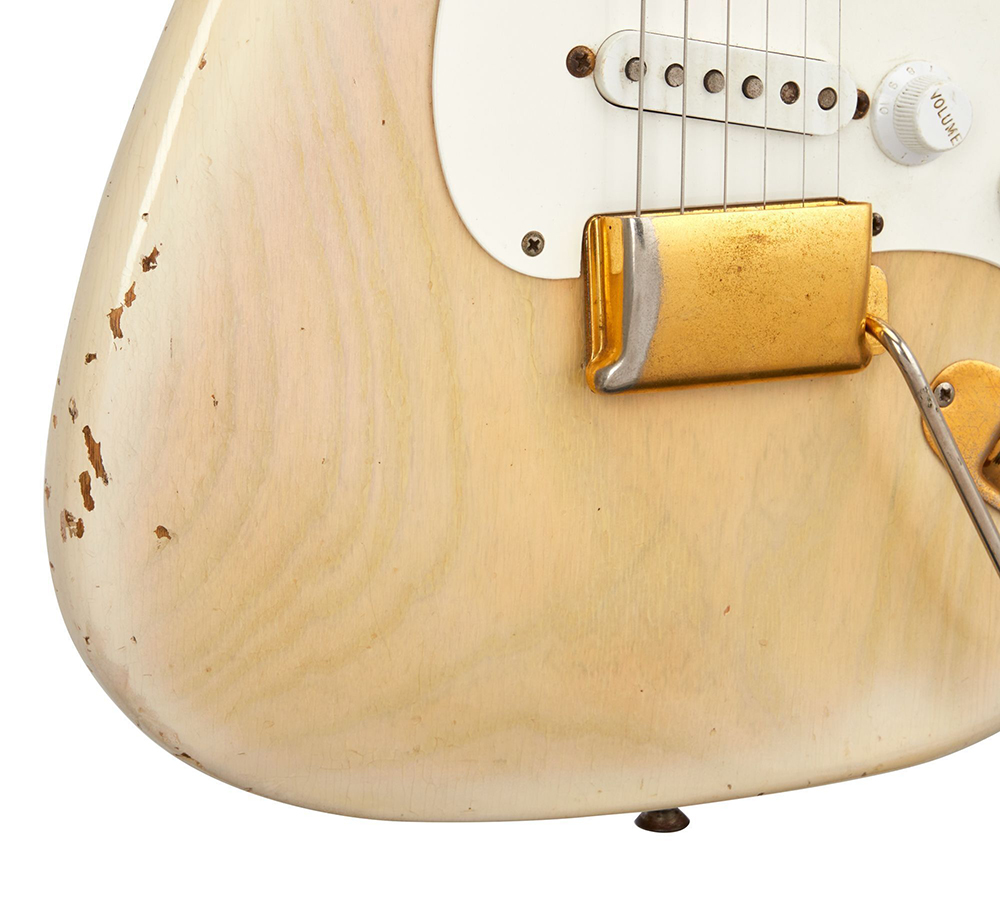
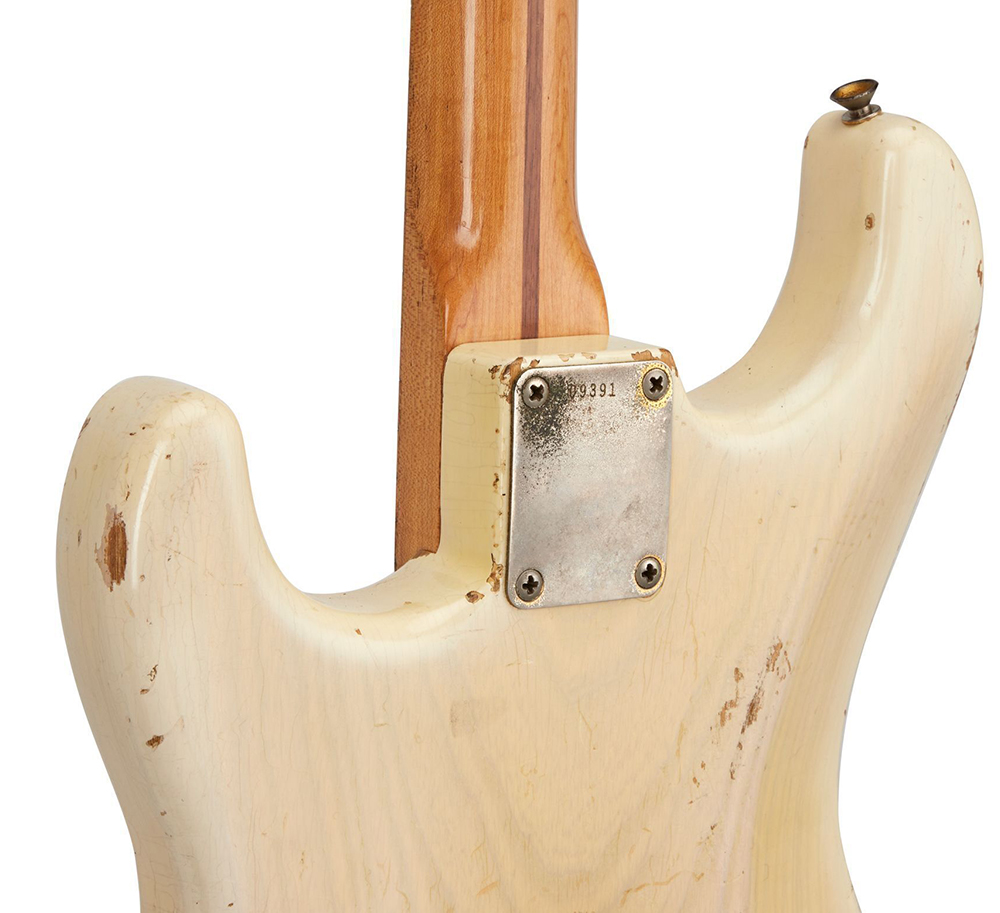
As such, the arrival of the original Mary Kaye Stratocaster to the auction circuit is a fairly significant development, and although it’s been set a lofty $300,000 upper estimate, it wouldn’t be ridiculous to suggest it could go beyond that.
What’s more intriguing is the fact Mary Kaye never even owned the Strat in question. Instead, she merely held it during the 1956 photoshoot – and used it during three numbers on the movie, Cha! Cha! Boom! – but that’s where the connection ends.
As Adams further explains, Kaye instead preferred to play her D’Angelico guitars, meaning that when people seek out a ‘Mary Kaye’ Strat, they have that nomenclature “thanks to a single photograph”.
“The Mary Kaye is interesting because of the unfortunate nature of the guitar industry,” he continues. “Women historically haven’t received the coverage and attention they deserve compared with their male counterparts, and as a result you don’t see as many cited examples of women who are heavily associated with a single instrument.
“Gilmour and Eddie Van Halen come up more frequently than Bonnie Raitt and her Strat, Joan Jett with her Melody Maker, Susan Tedeschi and her Caribbean Mist Tele, and Sister Rosetta Tharpe with that white three pickup SG Custom.
“This Stratocaster is inextricably linked to a female artist which makes it that much more special, and thankfully, things within the industry appear to be changing.”
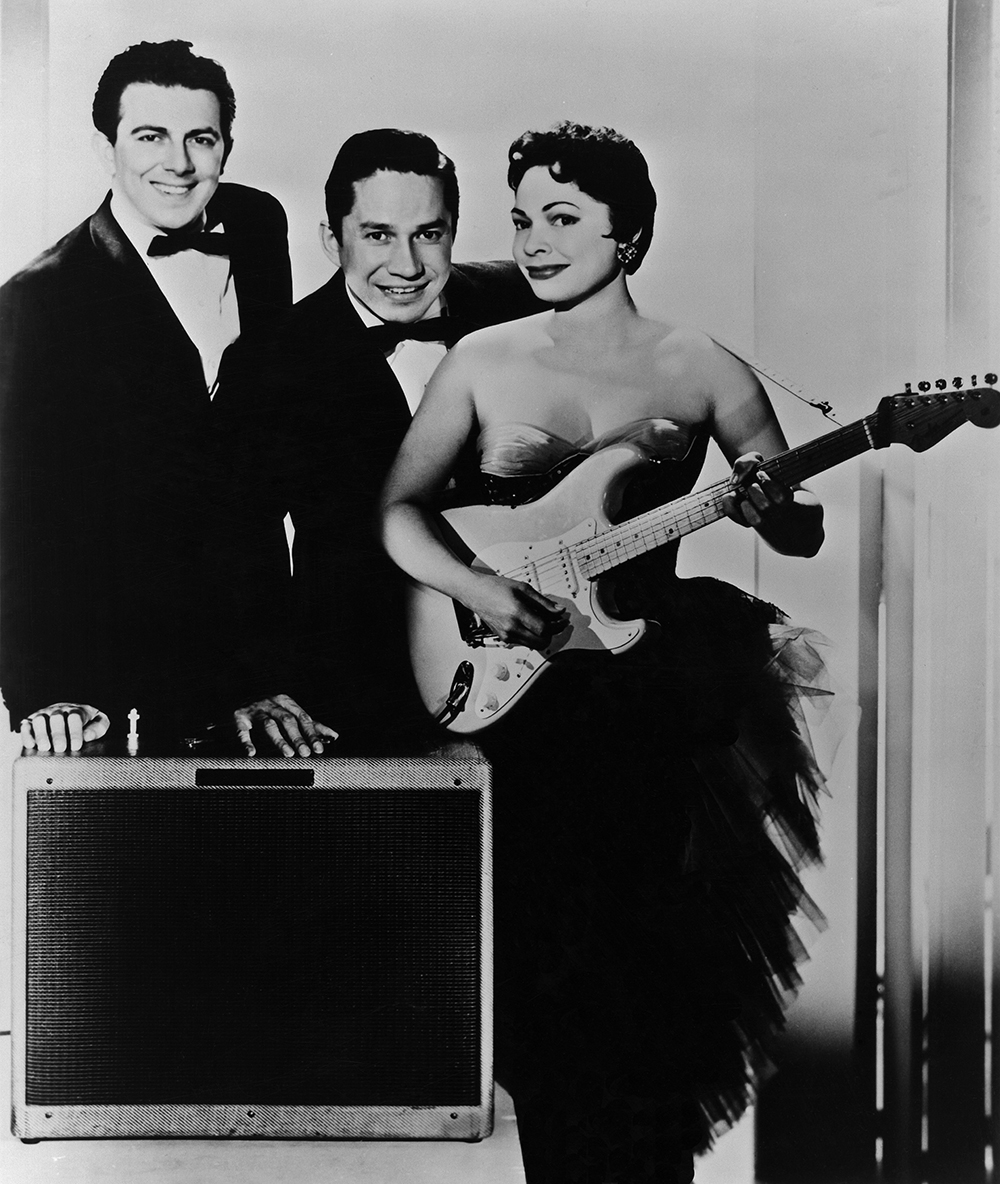
Over the past few years, the OG Mary Kaye Strat has been in the hands of a collector, who in turn acquired it from Iain Ashley Hershey, who featured the guitar on the cover of his albums. Before that, it belonged to a string of high-profile owners, from Johnny Cucci to Jimmy Crespo.
When it came to Julien’s, Adams – who has previously appraised John Lennon and Kurt Cobain's guitars for the auction house – was responsible for looking it over.
“Playing it, now that was an experience,” recalls the vintage expert. “The Mary Kaye – what a guitar. The neck is delightful with its large, soft V profile, light weight, warm and dynamic pickups, and it resonates wildly with every strum.
“[It’s] definitely in the top five Strats I’ve played over the course of my career, maybe the top.”
Owing to its historical, cultural and social significance, the Mary Kaye Stratocaster is expected to sell for upwards of $300,000.
“The Mary Kaye Stratocaster primarily appeals to guitar fans who understand the historical importance of the woman, the finish, and the Fender Stratocaster itself,” Adams concludes. “Folks who know what we mean by “Mary Kaye” and why we say that in the first place.”
The Played, Worn & Torn auction kicks off tomorrow (November 20). Head over to Julien’s to find out more.
Other guitars set to feature in the upcoming auction include Prince's Sadowsky model, George Harrison's Futurama, and Eddie Van Halen's Canada Flag guitar.







